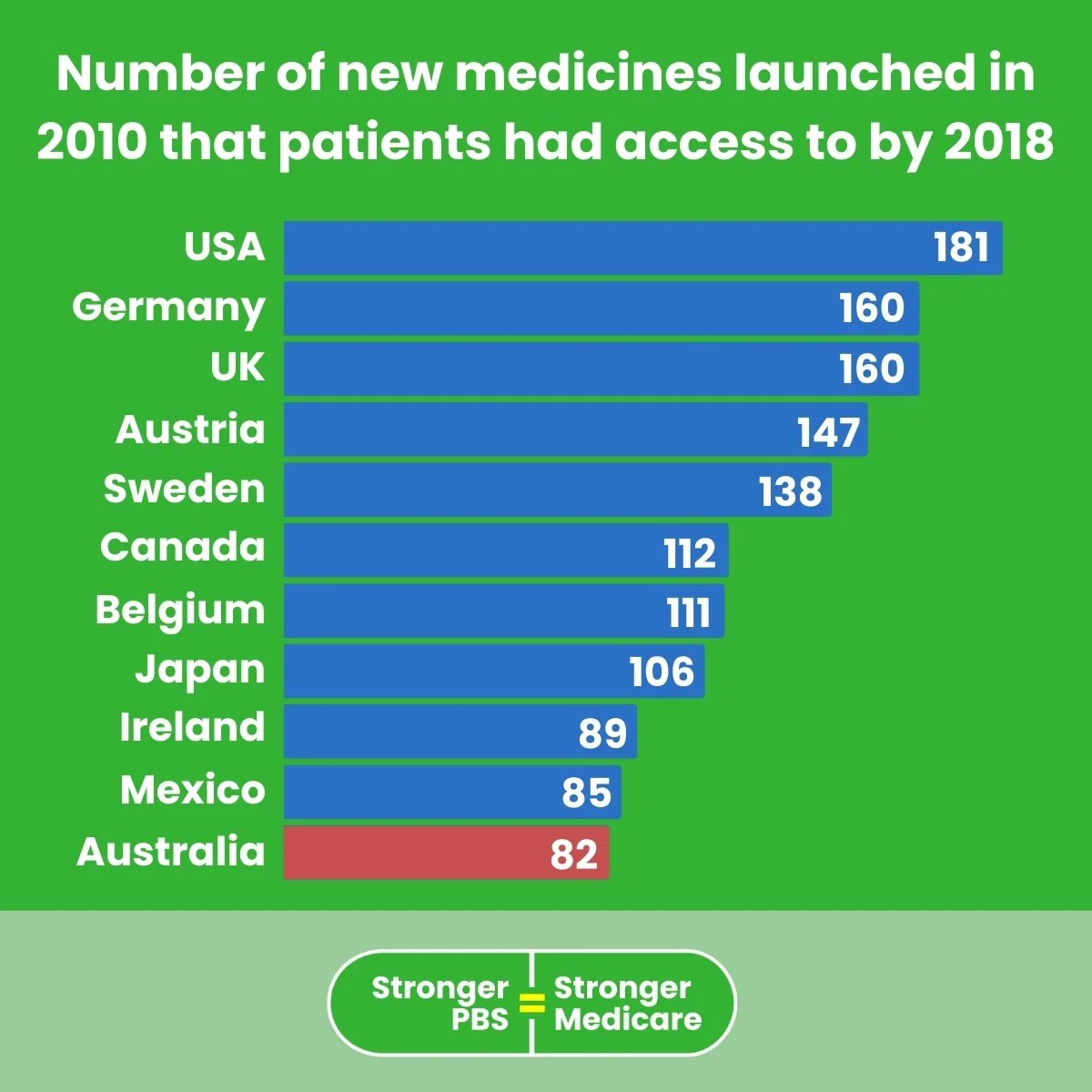The impact of new medicines
Professor Frank R. Lichtenberg (Columbia University) is a distinguished economist specialising in the impact of technological and pharmaceutical innovation on productivity and longevity.
His findings on the effect of new medicines made available through Australia’s Pharmaceutical Benefits Scheme (PBS) on mortality and hospital utilisation demonstrate a clear link between faster access to new medicines, longer life span and reduced days in hospital.
In 2023, Prof Lichtenberg published research which revealed compelling data that supports the need for bold reform of our PBS to accelerate patient access to new medicines.
Longer, healthier lives
Between 1992 and 2021, the number of medicines available on the PBS increased by 49%, from 636 to 949.
To understand the effect of new medicines on the PBS and hospital utilisation, Prof Lichtenberg identified 152 diseases that had multiple new treatments added to the PBS during this period and measured the projected and actual hospital stays for each condition.
He found clear links between the number of new medicines available on the PBS to treat the disease and reductions in hospital utilisation and mortality caused by the disease.
Innovative Medicines reduce hospital expenditure
Prof Lichtenberg found a greater reduction in the average length of hospital stays for diseases that had more treatment options become available through the PBS during this time.
The increase in medicines added to the PBS between 1994-2011 was associated with a 2.48 million reduction in the number of days spent in hospital in 2019. This is valued at an estimated cost saving of AU$5.97 billion.
The number of hospital days per 100,000 population is estimated to have declined by 4.3% between 2002 and 2019 as a result of new medicines available through the PBS.
In addition, the Prof Lichtenberg estimates that without the medicines that were added to the PBS between 1994 and 2011, the number of hospital days in 2019 would have been 10.6 per cent higher than it actually was.
Reduced mortality
The increase in new medicines available on the PBS between 1996 and 2013 greatly reduced premature deaths, particularly in younger people.
Based on Prof Lichtenberg’s findings, the researchers estimate the number of years of life lost before the age of 85 in 2019 was reduced by 21.2% from new medicines available on the PBS, meaning a saving of 359,026 years of life.
He also estimates that if the number of medicines made available through the PBS had not increased between 1996 and 2013, the number of years of life lost before age 85 in 2019 would have been 21.2% higher than it actually was.
Access to new medicines
Prof Lichtenberg also found that in 2018, Australia ranked 26 out of other countries in the number of medicines that were available to patients that had been available in other countries since 2010.
This shows Australians are waiting longer to access new medicines than patients in 25 other countries and some medicines are not brought to Australia at all.
Conclusion
Prof Lichtenberg’s research highlights the health and economic benefits of investing in new medicines and accelerating access to Australians through the PBS.
Investing in a stronger PBS that gives Australians faster access to new medicines will not only keep people healthier for longer, it will take pressure off our hospitals and healthcare system through reduced lengths of stay.
Read the full article here: Number of drugs provided by the Pharmaceutical Benefits Scheme and mortality and hospital utilization in Australia, 2002–2019 - ScienceDirect




